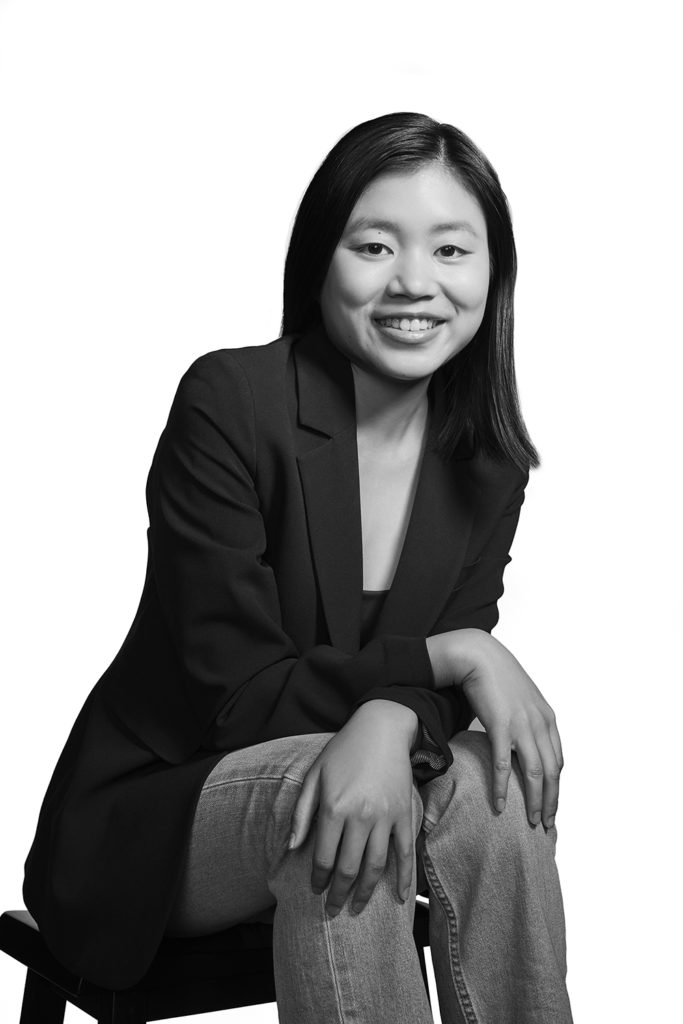Jane Chow ’19 is a Los Angeles-based writer-director born in Hong Kong. Chow earned a degree in film and television production from the LMU School of Film and Television. Her film “Sorry for the Inconvenience,” which she made a year after her graduation, won the 2021 Deutsche Bank Frieze Los Angeles Audience Award. The six-minute short depicts a Chinese family struggling to keep afloat their restaurant in Los Angeles’ Chinatown during the COVID-19 pandemic. Chow was interviewed by Editor Joseph Wakelee-Lynch.

“Sorry for the Inconvenience” is a story about family relationships and responsibilities. How much of this film is a Hong Kong story and how much is an American story?
At its core, “Sorry for the Inconvenience” is a Chinatown story. Los Angeles’ Chinatown has always been a special place to me. As someone who grew up in Hong Kong and moved to America without my family, I’ve always been able to find a home in Chinatown. In the past year, the Chinatown community has faced so much hardship because of anti-Asian racism, but also because for years developers in L.A. have been gentrifying Chinatown. A lot of legacy businesses and low-income residents have been pushed out. In Chinatown, there is no full-service grocery store and no laundromat, and many buildings, especially where elderly residents live, have broken elevators and lack simple necessities. So, I wanted to capture what Chinatown looks like and is going through today. “Sorry For the Inconvenience” is only one story of one family in Chinatown. There are so many other people in the community who are navigating these multilayer challenges every day.
“In the past year, the Chinatown community has faced so much hardship because of anti-Asian racism.”
Have you found that you have much in common with your peers who are first generation Asian Americans, in terms of how you see family responsibilities, for example?
When I first started college, that was my community. My closest friends were Asian Americans. Although my experiences are different from first-, second- or third-generation immigrants, I do feel there is much in common. Certain responsibilities in my own upbringing and that of my Asian American friends are shared: how we relate to our parents, how we see our responsibilities as children. For example, in my film the main character is 15 and has just started high school. In Hong Kong culture, we’re not fully independent then, but there is a craving for independence. That is a culturally specific coming-of-age experience similar to Hong Kongers and Asian Americans.
You now live with a foot in Hong Kong and a foot in the United States. Does that create a tension for you as an artist, and is it constructive or destructive tension?
I think it’s a creative tension. I draw a lot of inspiration from both Hong Kong and America. I’m at the crossroads of two places and different cultures, and I’m interested and intrigued by the perspectives, places, people and stories in L.A. and Hong Kong. Sometimes being between cultures has made me feel lonely because you have the sense that you don’t fit in here completely. But at the end of the day, it makes for a richer, more vivid experience. I feel lucky to call both L.A. and Hong Kong my home. It broadens the kinds of people I feel I can connect with and the stories that I love to explore and tell.
You also made “Pineapple,” a 10-part web series, and a short film called “Pieced Together.” Did you do both while a student at LMU?
Yes, I made “Pineapple,” which was shot in Hong Kong, during my junior and senior years at LMU. “Pieced Together” was my senior project. Doing both was a lot to juggle, but it was also one of the ways I found my closest collaborators at LMU, some of whom I’ve continued to work with, whether on short films, videos or commercials.
Do you see yourself telling stories in the future about the Hong Kong diaspora?
Yes. The Hong Kong diaspora is growing every day. I see myself as part of this very diverse and dynamic community. That community and their experiences are very dear to me. I definitely see myself continuing to tell stories about the Hong Kong diaspora.
